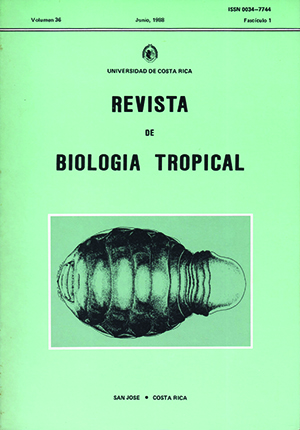Abstract
The terms “Eutrophication”, “Eutrophic” and “Oligotrophic”, frequently appear in the scientific literature. Most textbooks carefully avoid defining these terms, nebulously referring to “nutrient rich water” as eutrophic and “nutrient poor water” as oligotrophic. Several texts refer to the classical works on Limnology by Hutchinson, though these terms appear to date from publications in 1917 and 1918 by Naumann and Thienemann (Kelly and Naguib 1984). Hutchinson (1957), referring to eutrophication, makes a statement which is worthwhile repeating: “As is usual in the formative period of any science, the terminology employed at first is somewhat unsatisfactory”. Despite these words of caution 30 years ago, the terms flourished and are now in very general use in marine environmental science (for which they were never intended).References
Fasham, M.J.R., T. Platt, B. Irwin & K. Jones. 1985. Factors affecting the spatial pattern of the deep chlorophyll maximum in the region of the Azores front. Prog. Oceanog. 14: 129-165.
Hutchinson, G.E. 1959. A Treatise on Limnology, Vol.1, Part 2. Wiley, N.Y. p. 602.
Kelly, M. & M. Naguib. 1984. Eutrophication in coastal marine areas and lagoons: a case study of “Lac de Tunis’. UNESCO reports in marine science 29, UNESCO, Paris. 53 p.
Margalef, R. 1982. Ecología. Omega, Barcelona, 951pp.
Mee, L.D. 1978. Coastal lagoons. In Chemical Oceanography, Vol, 7, (J.P. Riley and R. Chester, Eds.), Academic Press, London, pp. 441-490.
Parsons, T. & M. Takahashi. 1973. Biological Oceanographic Processes. Pergamon, Oxford, 186pp.
Sournia, A. (Ed.). 1978. Phytoplankton manual. UNESCO, Paris, 337pp.
Thomas, W.H. 1979. Anomalous nutrient-chlorophyll interrelationships in the offshore eastern tropical Pacific Ocean. J. Marine Res. 37: 327-335.
##plugins.facebook.comentarios##

This work is licensed under a Creative Commons Attribution 4.0 International License.
Copyright (c) 1988 Revista de Biología Tropical


